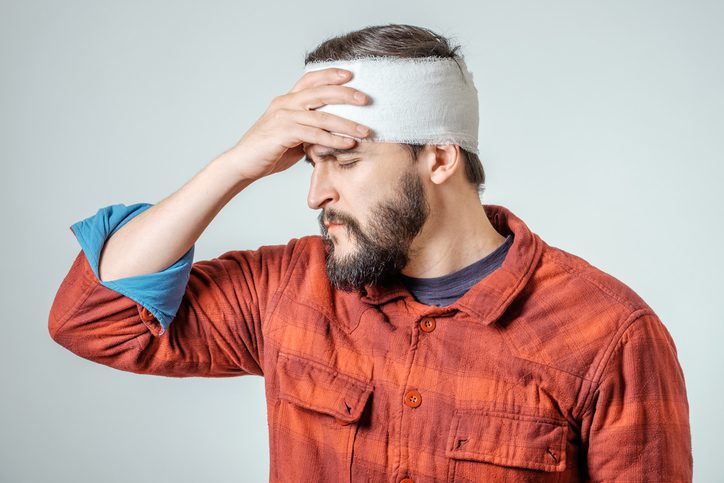Can a traumatic brain injury increase the risk of addiction? When a traumatic brain injury occurs, the way the brain functions changes. In some situations, that could mean a person is more susceptible to the onset of conditions like addiction to drugs or alcohol. Studies published by the National Institutes of Health consistently show that there may be a link between traumatic brain injury and addiction.
What Is a Traumatic Brain Injury?
Often referred to as a TBI, a traumatic brain injury occurs when there is some type of damage to the structure of the brain. It often occurs as a result of trauma to the skull that leads to injury to the brain. A TBI does not always require such blunt force that a person has actual physical changes to the brain itself, but even lesser injuries can lead to substantial changes in the way a person processes information, responds to situations, and communicates.
Many people have a mild traumatic brain injury that they are not even aware of. Some will recover. Others have long-lasting injuries to the brain that can lead to numerous complications to health, way of life, and overall well-being.
Some of the most common causes of traumatic brain injury include:
- Car accidents
- Falling from heights
- Assault
- Sports injury
- Combat-related injuries
Because of the way TBIs impact the brain’s function, it can increase the risk of self-medicating to deal with symptoms of pain and changes in cognitive function. Over time, this can lead to the development of addiction and dependency.
How TBIs Lead to Addiction
Not everyone with a TBI will develop addiction. Even if a person has severe complications from their injury, that does not automatically mean they will be using substances or becoming addicted to substances.
The most common reasons addiction forms in people with these injuries include the following:
- Self-medicating
Some people struggle with addiction because they have turned to substances as a way to deal with the symptoms of their traumatic brain injury. For example, some people develop chronic pain as a result of TBIs. As a result, they may use opioids or other pain medications to try to reduce the pain. This can lead to the onset of addiction.
Note, too, that some people use medications to treat the symptoms of mental health disorders that develop after a TBI occurs. This can include anxiety, depression, and post-traumatic stress disorder. The person may use alcohol or other addictive drugs as a way to combat mental health symptoms.
- Reality escape
TBIs often create obstacles to quality of life. They can make it hard to do the things you used to do with ease. They can also create intense mood swings or depression. Even without the presence of a mental health disorder, some people will use substances as a way to escape from all of the thinking and processing challenges they face.
- Dealing with trauma
Some people received their TBI as a result of a psychologically traumatic experience. This is common in Veterans who may have been exposed to intense combat or other terrifying situations. In addition to getting a TBI, they may also have developed post-traumatic stress disorder and turned to substances to deal with both. People who have received TBIs as a result of abuse or of other tragic situations may also be dealing with emotional as well as physical trauma.
What to Do If You Have a Traumatic Brain Injury and Addiction?
At Iron Bridge Recovery Center, we offer comprehensive treatment programs that will address the underlying cause of your addiction and dependence. That includes TBIs. Many people can see improvement in the symptoms they have from TBIs, which can strengthen their ability to recover from addiction as well as the injury itself.
Contact Iron Bridge Recovery Center today to learn more about our treatment programs and comprehensive strategies for recovery from addiction. Our drug and alcohol treatment center in Chester, VA, is readily available to provide you with a safe place to start the recovery process. Contact us now.





